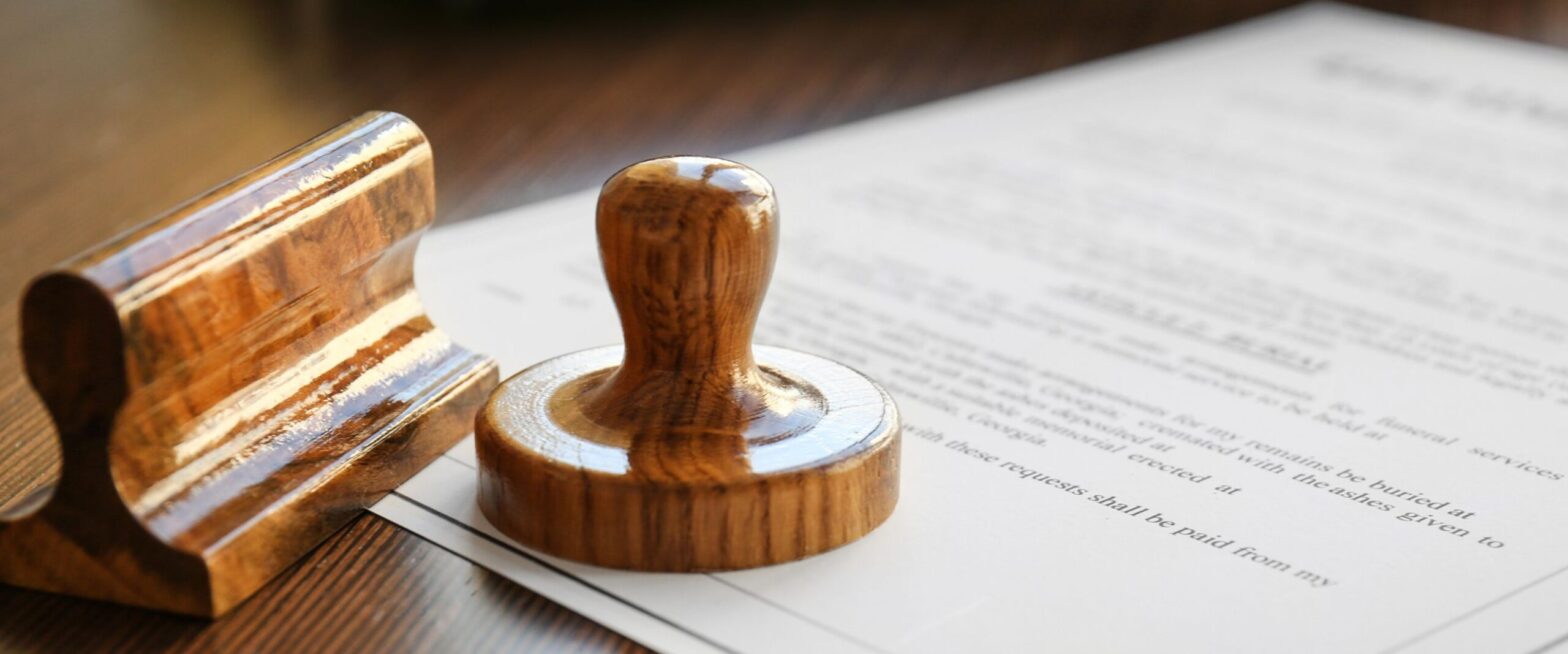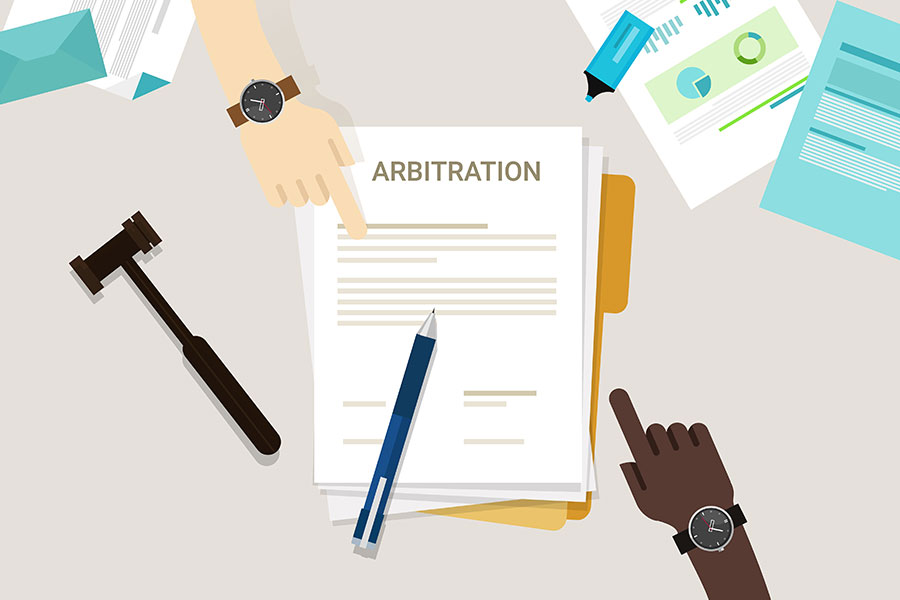Apple And Its ‘Green Approach’ Of Muddying Consumer Interests

Introduction
Lately, during Covid-19 pandemic, all of us have learnt our dependency on the technology, either while working from home, or students attending their classes online or using internet banking services. Equally, there’s been observed a significant surge in the sale of technology products like laptops,[1] mobiles and workstations during the last one year across the world. The sooner we embrace the efficiency of small technology in our lives, the more beneficial it will be. It is predicted that, by the end of 2021, the technology industry would reach an all-time high of $5 trillion.[2] Deloitte, a leading surveyor has forecast that the upcoming service technologies like global public cloud service would reach a revenue of $308.5 billion in 2021.[3] The dependency on technology and the means which carry them has never been more. These facts and figures are not unknown to the corporations in technology industry. The issue arises, when the said corporations treat its consumers as lab rats by attempting experiments with the latter being the ultimate loser rather than a beneficiary. This article analyses one such noteworthy case, when Apple Inc. decided not to have chargers in the smartphone boxes relying on ‘environmental reasons’.
Factual Background
Apple Inc. (“Apple”) decided to omit supplying a charger with the purchase of a brand-new iPhone. The announcement came in as a surprise to even its most loyal consumers. Arguably, the biggest name in the technology industry and definitely the biggest player in the smartphone industry,[4] Apple defended its critique by citing 5environmental reasons for this surprising decision.[5] The technology giant stated in its Environmental Progress Report that it was in a position to conserve 8.61 lakh tons of copper, zinc and metal by choosing not to supply chargers with their iPhones.[6] Further, since there was no charger inside the smartphone box, the packaging process was made more efficient.[7] ProconSP (“Regulator”) is the Brazilian Consumer Protection Regulator. Multiple complaints were made to the Regulator regarding the recent practices of apple. While the issue which stirred the headlines pertained to the company’s policy of not providing a charger with their new smartphones, other complaints regarding the misleading advertisement with respect to the waterproof feature of the smartphone and abusive clauses in the terms and conditions were also part of the dispute. The Regulator did not only not accept the reasoning assigned by Apple but also notified it to explain the reason behind this change in policy.[8] When Apple failed to respond to the questions posed by the Regulator, a fine to the tune of $2 million was imposed.[9] In this article, we aspire to understand the nuances of the Brazilian consumer law and the comparison to its Indian counterpart in light of the said decision.
Apple attempted a similar practice in France, but was estopped from doing so under the French consumer protection law. A provision in the municipal law of France requires that all mobile devices must aim to minimise the radiation from electromagnetic fields.[10] In this context, Apple was forced to have, otherwise omitted, it’s earphones in the smartphone box.[11] This made France the only country where Apple had to sell their iPhones with free EarPods.[12]
Analysis of the Brazil Regulator’s decision
The Code of Consumer Defense and Protection, 1990[13] (“CCDP”) was adopted by Brazil on September 11, 1990. The foremost provision of the CCDP states that this statute aims to establish the norms regarding consumer protection and defence.[14] As already discussed, the case against Apple was regarding multiple complaints ranging from not supplying chargers to misleading advertised clauses. After a review and analysis of various consumer complaints and response made by the Apple, the Regulator released an official press release, primarily emphasising that the tech giant was wrong on their part for not including a charger in the phone box and and as a result a significant fine was imposed on Apple.[15]
It was decided by the Regulator that Apple’s policy of selling its smartphone without the charger qualifies as an abusive practice since the same is an essential accessory for the use of the product.[16] There were two prominent questions posed by the Regulator, which were majorly left unanswered by Apple. Firstly, the Regulator sought the information regarding the reduction in the price of the smartphone after the charger was kept out of the box, and secondly, and more importantly, Apple was asked to show evidence on how the reduction in the production of the chargers produced achieved it’s target and corporate milestone of ‘green approach’.[17] Alongside, Apple was found guilty of publishing misleading advertisements pertaining to their iPhone 11 Pro, which was claimed to be waterproof. Upon an inquiry by the Regulator, the company stated that the feature was not permanent and, argued that in order to avoid liquid damage, the consumers should not swim or shower with the phone. However, various advertisements by the company had set the record straight that their phone is “made to take splashes and even a bath”, alongside images of the phone receiving high-pressured water flashed the screens. This, change in stance clearly established the advertisements to be misleading.[18] Furthermore, the terms regarding the product’s warranty were found to be unfair, since, since, as per their Terms and Conditions, the company was exempt from all legal and implicit guarantees against any such hidden defects in the phones. This practice was found to be in violation of the provisions of CCDP, which essentially safeguards consumers against exoneration of the supplier’s liability for defects of any nature.[19] Not only this, Apple also refused to fix a problem which arose in a smartphone purchased abroad, even within the statutorily stipulated period of 30 days. This was held to be a violation under the CCDP which lists the rights of consumers lucidly.[20]
Uniquely, this new naught approach of various mobile companies to skip adding chargers, earphones and earpods within the phone-box is not something active phone users are unaware of. Samsung have also made official declaration for not including chargers in their mobile upgrades
Tied Selling
Let us analyse the concept of tied selling in light of the dispute under study. The arrangement wherein a product or service is provided on the condition that the consumer will purchase another good or service is referred to as tied selling.[21] This practice of selling is illegal in a plethora of jurisdictions.[22] The Indian law, Competition Act, 2002, defines this concept as a “tie-in-arrangement”.[23] Provisions within the said Act bars arrangements where the consumer, in order to purchase a good, mandated to purchase another good, for this is an abuse of dominant position.[24] The Competition Commission of India (hereinafter referred to as the “CCI”) has upheld the legislative mandate when it found that a tying arrangement by a dominant entity is violative of the provisions of the Competition Act, 2002.[25] It is accepted by the CCI[26] that ‘tying’ and ‘bunding’ are two different practices as given under the concept of the Competition Act, 2002. However, in effect the practices are similar.[27] Thus, both the practices must be covered under the Competition Act, 2002 in order to eliminate anti-competitive practices.
Indian Scenario
The Consumer Protection Act, 2019 (hereinafter referred to as the (“CPA”) provides for all the rights and remedies that a consumer in India has. All possible shortcomings from the sale and delivery of a good are covered by the said law. A complaint can be filed if the product is a defective one.[28] Further, there arises a statutory liability of the manufacturer if the product is found to have any defect, or is not according to the design specifications as mentioned in the advertisement, or does not conform to the express warranty.[29] Both the Consumer Fora established under the CPA and the Hon’ble Supreme Court through its appellate jurisdiction has upheld these rights of the consumers. The Apex Court has long established that technical grounds should not be relied upon while deciding a consumer dispute.[30][31]
Conclusion
In light of the decision by the Regulator from Brazil, and established jurisprudence in the Indian legal regime, Apple must not continue its practice of not including the charger – an essential accessory, with the sale of the smartphone. The ‘green approach’ taken by Apple is, perhaps, muddied with no reduction in the production of the chargers and no decrease in the price of the smartphone. Such a practice is anti-competitive as it inevitably amounts to a tied sale given the necessity of the accessory. Disputes pertaining to such technical nuances of consumer and competition law can only be brought before the courts with thorough knowledge of consumer rights. The move by France is applaudable since it has manifested the promise of a ‘consumer first’ policy by enacting and enforcing technically intricate laws. An inspiration from the same is warranted.
The belief for a sustainable environment must be supported by innovative solutions which are economic and socially acceptable. The increasing concern for digital and e-waste lays the case for a universal charger for mobile phones, tablets, e-book readers, smart cameras, wearable electronics and other small or medium-sized electronic devices.
[1] Arnab Dutta, India plugged: Work from home drives laptop sales amid Covid-19 lockdown, Business Standard, Aug 12, 2020, available at: https://www.business-standard.com/article/companies/india-plugged-work-from-home-drives-laptop-sales-amid-covid-19-lockdown-120081101812_1.html (last accessed: June 20, 2021).
[2] Ana Djurovic, 32 Crucial Technology Industry Statistics to Know in 2021, GoRemotely, May 19, 2021 available at:
https://goremotely.net/blog/technology-industry-stats/#:~:text=According%20to%20reports%2C%20the%20tech,equivalent%20to%201.6%20trillion%20dollars. (last accessed: June 20, 2021).
[3] Deloitte, 2021 outlook for the US technology industry, Deloitte Center for Technology, Media & Telecommunications, available at: https://www2.deloitte.com/us/en/pages/technology-media-and-telecommunications/articles/technology-industry-outlook.html (last accessed: June 20, 2021).
[4] Tech Desk, Apple beats Samsung to become the biggest smartphone player in Q4 2020, The Indian Express, Jan 28, 2021, available at: https://indianexpress.com/article/technology/mobile-tabs/apple-beats-samsung-to-become-the-biggest-smartphone-player-in-q4-2020-7164740/ (last accessed: June 20, 2021).
[5] Wonder why Apple stopped giving chargers with iPhones? Here’s the reason, Business Today, Apr 18, 2021, available at: https://www.businesstoday.in/current/corporate/wonder-why-apple-stopped-giving-chargers-with-iphones-heres-the-reason/story/436919.html (last accessed: June 20, 2021).
[6] Ibid.
[7] Ibid.
[8] News & Releases, Although Apple sells new iPhone models without a charger, Procon-SP will require that the equipment be made available to consumers who request, ProconSP, Dec 02, 2020, available at: https://www.procon.sp.gov.br/notificacao-apple/ (last accessed: June 20, 2021).
[9] Kim Lyons, Brazil regulator fines Apple $2 million for not including chargers with iPhone 12, The Verge, Mar 20, 2021, available at: https://www.theverge.com/2021/3/20/22342051/brazil-regulator-fines-apple-2-million-chargers-iphone-12 (last accessed: June 20, 2021).
[10] See Article 184 of the Law No. 2010-788 of July 12, 2010 on the national commitment to the environment, available at: https://www.legifrance.gouv.fr/loda/article_lc/LEGIARTI000030216714/ (last accessed: June 20, 2021).
[11] Olga Naidenko, French law informs, protects cell phone users, Environmental Working Group, Dec 23, 2010, available at: https://www.ewg.org/news-insights/news/french-law-informs-protects-cell-phone-users (last accessed: June 20, 2021).
[12] This is the only country where Apple has to provide free EarPods with iPhone 12 by law, The Times of India, Oct 21, 2020, available at: https://timesofindia.indiatimes.com/gadgets-news/this-is-the-only-country-where-apple-has-to-provide-free-earpods-with-iphone-12-by-law/articleshow/78793044.cms (last accessed: June 20, 2021).
[13] Available at:
http://www.procon.rj.gov.br/procon/assets/arquivos/arquivos/CDC_Novembro_2014_Ingles.pdf (last accessed: June 20, 2021).
[14] Article 1 of the Code of Consumer Defense and Protection, 1990 states that: “This Code sets forth the norms for consumer protection and defense, regarding public order and social interest, based on articles 5, paragraph XXXII, 170, paragraph V of the Federal Constitution in article 48 of its Transitional Dispositions.”
[15] News & Releases, Company is fined more than ten million for misleading advertising, sale of device without charger and unfair terms, ProconSP, Mar 22, 2021, available at: https://www.procon.sp.gov.br/procon-sp-multa-apple/ (last accessed: June 20, 2021).
[16] Ibid.
[17] Ibid.
[18] Ibid.
[19] Article 51(1) of the Code on Consumer Defense and Protection, 1990 states that: “Any clauses that impose any of the following situations, among others, will be nullified:
Remove, exonerate, or lighten the supplier’s liability for defects of any nature in the products or services delivered or that renounce any rights. In any consumer relationship between the supplier and a consumer that is a corporate entity, the compensation may be limited, in justifiable situations;”
[20] Article 18 of the Code on Consumer Defense and Protection, 1990 states that: “Suppliers of durable or non-durable consumer goods will answer for any quality or quantity defects that make these goods inadequate for their purpose or that diminish their value, as well as any defects resulting from the product being different from what is expected, from what is indicated in the packaging, label, or advertisement, taking into account any variations that may be a result of the goods very nature. The consumer has the right to demand substitution of any defected parts.
- If the problem of the defect is not solve
- d within 30 days, the consumer may demand
one of the following, according to his preference:
I – substitution of the product for another product of the same nature, in perfect condition;
II – the immediate return of the money paid, with any monetary adjustments, with no loss due to the eventual losses or damages;
III – a discount proportional to the defect.
- The involved parties may agree on a reduction or expansion of the time frame mentioned in the previous paragraph, as long as this time frame is not shorter than seven days and not longer than 180 days. In adherence contracts, the clause pertaining to the timeframe must be included separately, through a written declaration from the consumer.
- Depending on the type of defect, the consumer may make immediate use of the alternatives in the first paragraph of this article, whenever the substitution of defected parts may compromise the quality or characteristics of the product, diminish the value of the product or when the product is otherwise essential.
- If the consumer chooses the alternative mentioned in item I in 1 of this article, and if the substitution of the product is not possible, substitution can be made for a product of another type, brand, or model, by complimenting for receiving back any differences in price, without losing the rights set forth by items II and III in 1 of this article.
- In the case that the products being supplied are in nature, the immediate supplier will be responsible for any damages caused to the consumer, except when the producer of this product a clearly identified.
- The following are deemed unfitting for use and consumption:
I – any expired product;
II – products that have deteriorated, been altered, changed, damaged, falsified, corrupted, products that include a type of fraud, that are harmful to life or health, dangerous, or even
those that did not abide by manufacturing, distribution or presentation rules;
III – products that, for any reason, may be inadequate for the purposes for which it was intended.”
[21] Adam Hayes, Tied Selling, Investopedia, Jan 30, 2021, available at: https://www.investopedia.com/terms/t/tiedselling.asp (last accessed: June 20, 2021.
[22] See Article 101 of the Treaty on the Functioning of the European Union (for the European Union), Sherman Antitrust Act, 1890 (for the United States of America) and the Bank Act, 1871 (for Canada).
[23] The Explanation (a) to Section 3(4) of the Competition Act states that: “”tie-in-arrangement” includes any agreement requiring a purchaser of goods, as a condition of such purchase, to purchase some other goods;”
[24] Section 4(2)(d) of the Competition Act, 2002 states that: “Abuse of dominant position.- There shall be an abuse of dominant position under sub-section (1), if an enterprise or a group- makes conclusion of contracts subject to acceptance by other parties of supplementary obligations which, by their nature or according to commercial usage, have no connection with the subject of such contracts.”
[25] Kapoor Glass (India) Pvt. Ltd. v. Schott Glass India Pvt. Ltd., 2012 SCC OnLine CCI 15, available at: http://www.cci.gov.in/sites/default/files/Case22of2010OrderMemberGG.pdf (last accessed: June 20, 2021).
[26] Sonam Sharma v. Apple Inc., 2013 SCC OnLine CCI 25, available at: http://www.cci.gov.in/sites/default/files/242011_0.pdf (last accessed: June 20, 2021).
[27] Karan Trehan and Prakhar Bhatnagar, Tying vs Bundling Arrangements: An Attempt at Resolving the Lacuna in Indian Law, IndiaCorpLaw, May 31, 2018, available at: https://indiacorplaw.in/2018/05/tying-vs-bundling-arrangements-attempt-resolving-lacuna-indian-law.html (last accessed: June 20, 2021).
[28] Section 2(6)(ii) of the Consumer Protection Act, 2019 states that- “”complaint”- means any allegation in writing, made by a complainant for obtaining any relief provided by or under this Act, that- the goods bought by him or agreed to be bought by him suffer from one or more defects;”.
[29] Section 84(1) of the Consumer Protection Act, 2019 states that- “Liability of product manufacturer. A product manufacturer shall be liable in a product liability action, if-
(a) the product contains a manufacturing defect; or
(b) the product is defective in design; or
(c) there is a deviation from manufacturing specifications; or
(d) the product does not conform to the express warranty; or
(e) the product fails to contain adequate instructions of correct usage to prevent any harm or any warning regarding improper or incorrect usage.”
[30] Gurshinder Singh v. Shriram General Insurance Co. Ltd., (2020) 11 SCC 621, available at: https://main.sci.gov.in/supremecourt/2015/23979/23979_2015_1_1501_19729_Judgement_24-Jan-2020.pdf (last accessed: June 20, 2021).
[31] Tata Motors Ltd. v. Antonio Paulo Vaz, 2021 SCC OnLine SC 125, available at: https://main.sci.gov.in/supremecourt/2020/13758/13758_2020_38_1503_26259_Judgement_18-Feb-2021.pdf (last accessed: June 20, 2021).




